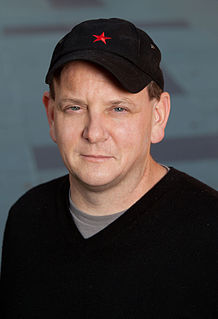A Quote by Leroy Hood
I didn't want my genome to be sequenced by any of the companies that were out there doing the partial sequences just from the point of view of commercialisation.
Related Quotes
The question is, are there useful things that we can do with the results of a genome sequence that would bring benefit? And the answer is, today, should the majority of people go and have their genome sequenced? Probably not. But are there particular circumstances in which genome sequencing is really helpful? Yes, there are.
There's always a question when you invest. Are you too early, are you too late, or are you just right? And there was a lot of hype about life sciences, around the sequencing of the human genome and a lot of people concluded that's not really there. But by the way, there was a lot of hype around the digital revolution just about the time of 2000 and the human genome, and it turns out that some of the world's biggest, most powerful companies are the survivors post that crash.
Partial repetitions is another technique that I used -- sparingly. I was always a fan of doing full repetitions on every set. However, at the very end of a set where you cannot do any more, and especially if you don't have a training partner, the partial repetitions are good for eking out a little bit more out of the exercise.
When we first started our internet company, 'China Pages', in 1995, and we were just making home pages for a lot of Chinese companies. We went to the big owners, the big companies, and they didn't want to do it. We go to state-owned companies, and they didn't want to do it. Only the small and medium companies really want to do it.
Everybody you work with sees what you're doing from a different point of view, a very specific point of view. So, if someone is lighting, they're seeing it from that point of view. A production designer is seeing it from the placement of furniture that tells you about the character. Everything that goes into the room should tell you about the person who lives in that room.




































